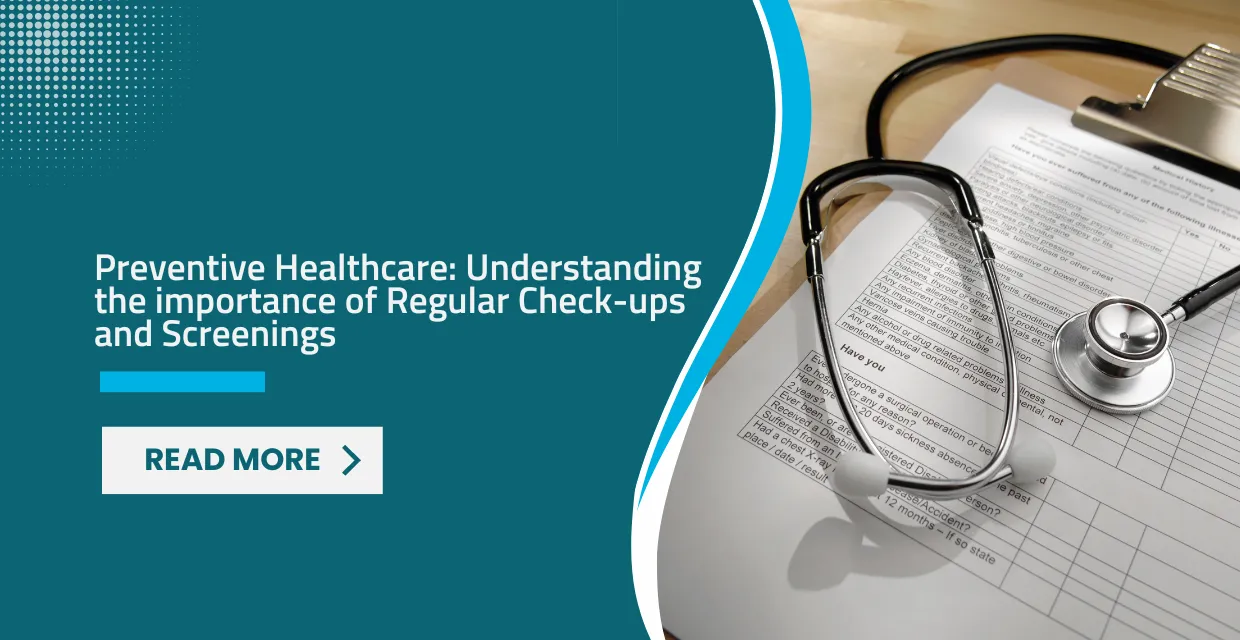Busting Myths About Pneumonia: World Pneumonia Day Edition
Pneumonia is a common yet potentially deadly infection that affects the lungs. Despite its prevalence, many myths surround this condition. In recognition of World...

Preventive healthcare, encompassing regular check-ups and screenings, stands as a cornerstone in maintaining optimal health and well-being. It's a proactive approach aimed at early detection and prevention of diseases, rather than treating them after they've developed. In Kenya, where healthcare challenges are multifaceted, the role of preventive healthcare becomes even more pivotal. The Best Hospital in Kenya is instrumental in providing comprehensive preventive care services, guiding the population towards healthier lifestyles and early disease intervention.
Preventive healthcare is all about taking measures to prevent diseases before they occur. This approach includes regular health check-ups, screenings, immunizations, and lifestyle modifications. The goal is to identify risk factors and early signs of diseases, allowing for timely intervention and reducing the likelihood of disease progression.
Regular health check-ups are crucial for everyone, regardless of age or health status. These check-ups provide a health snapshot, allowing doctors to assess your current health status and make recommendations to maintain or improve your health. They offer an opportunity to discuss any concerns and get advice on diet, exercise, and healthy living.
Screenings are tests performed to detect diseases before symptoms become apparent. These include screenings for:
Cancer: Early detection of cancers, such as breast, cervical, and colorectal cancer, through mammograms, Pap smears, and colonoscopies can significantly improve treatment outcomes.
Cardiovascular Diseases: Blood pressure checks, cholesterol levels, and other heart-related screenings can identify individuals at risk, allowing for early intervention.
Diabetes: Regular blood sugar tests can detect pre-diabetes or diabetes early on, enabling individuals to manage their condition through lifestyle changes or medication.
Infectious Diseases: Screenings for diseases like HIV, tuberculosis, and malaria are vital in Kenya, given their prevalence and impact on public health.
Vaccinations are a key component of preventive healthcare, protecting against various infectious diseases. In Kenya, vaccination programs against diseases like polio, measles, and hepatitis have been pivotal in reducing morbidity and mortality rates, particularly among children.
Preventive healthcare also emphasizes the importance of healthy lifestyle choices. Regular physical activity, a balanced diet, avoiding tobacco and excessive alcohol consumption, and managing stress contribute significantly to disease prevention. Health education provided by healthcare professionals, including those in the best hospitals in Kenya, empowers individuals with the knowledge to make informed health decisions.
The benefits of preventive healthcare are manifold:
Reduced Disease Burden: Early detection and management of diseases can lead to better health outcomes, reducing the overall disease burden on individuals and healthcare systems.
Cost-Effectiveness: Preventive care can be more cost-effective than treating advanced diseases. Regular check-ups and screenings can prevent costly medical interventions in the future.
Increased Longevity: By managing risk factors and detecting diseases early, preventive healthcare contributes to increased life expectancy.
Enhanced Quality of Life: Preventive healthcare helps individuals maintain good health and well-being, leading to an improved quality of life.
Despite its significance, preventive healthcare in Kenya faces challenges such as limited access in rural areas, inadequate healthcare infrastructure, and low awareness. However, there are opportunities for improvement, including leveraging technology for telemedicine services, enhancing healthcare infrastructure, and increasing public health campaigns to raise awareness about the importance of preventive care.
Preventive healthcare, with its focus on regular check-ups, screenings, immunizations, and lifestyle modifications, is essential for early disease detection and prevention. In Kenya, the contribution of the best hospitals in promoting preventive care is invaluable, offering advanced healthcare services and education to the population. By embracing preventive healthcare, individuals can take control of their health, leading to reduced disease rates, lower healthcare costs, and improved quality of life. The path to a healthier Kenya lies in the collective effort of healthcare providers, the government, and the community to prioritize and invest in preventive healthcare services.
Partager cet article